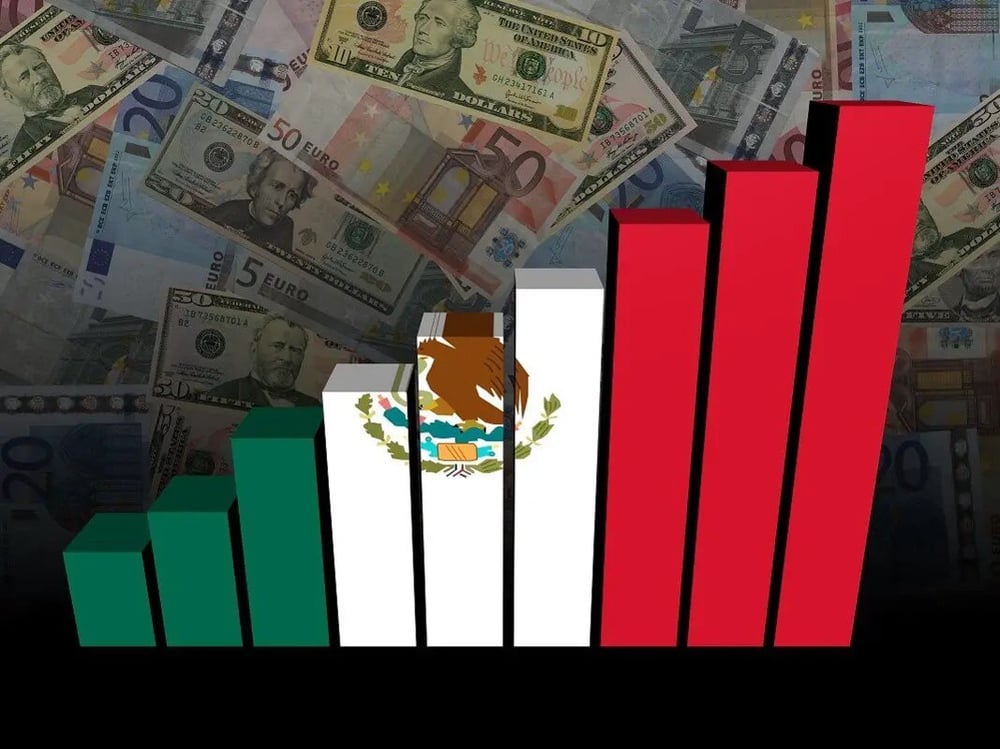Nearshoring Journal: Trump Wins, but FDI in Mexico Will Keep Flowing
Dec 12, 2024 12:36:52 PM 3 min read

Donald Trump’s win in the U.S. presidential election has naturally got people talking about what it means for trade between the two countries. But here’s the good news—recent data on foreign direct investment (FDI) in Mexico tells a pretty positive story.
Not only has Mexico achieved record FDI inflows in 2024, but it also continues to position itself as a strategic destination for international capital, driven by the USMCA and nearshoring.
Historical Trends: Resilience Amid Political Uncertainty
U.S. presidential elections have always brought some uncertainty to global markets, and Mexico is no exception. Take Trump’s previous administration (2017–2020) as an example. Even with all the trade tensions and talk about renegotiating NAFTA (now USMCA), foreign investment in Mexico actually went up. In 2016, Mexico pulled in $31.2 billion in FDI, which jumped to $34 billion in Trump’s first year. Not bad, right?
In pre-election years like 2016, there was a slight slowdown in capital inflows due to corporate caution. However, this trend quickly reversed once the USMCA framework was solidified. This reinforces the idea that despite political “noise,” Mexico’s competitive advantages sustain investment flows.
FDI 2024: Record-Breaking Numbers Despite Uncertainty
From January to September 2024, Mexico captured $35.73 billion in FDI, an 8.5% increase compared to the same period in 2023. According to Economy Secretary Marcelo Ebrard, projections suggest the year-end total could reach $38.17 billion, marking a historic record.
Data from the Ministry of Economy for the first half of 2024 highlights the manufacturing sector as the top recipient, with $16.65 billion (53.5% of the total). Other key sectors include:
- Financial services: $4.8 billion (15.4%).
- Mining: $2.98 billion (9.6%), showing significant growth compared to the previous year.
- Transport: $2.5 billion, nearly quadrupling the 2023 figure.
This demonstrates that even in a pre-election environment, Mexico’s sectoral diversification and structural advantages have been critical in attracting capital.
Trump 2.0: What to Expect From His Return
Trump’s talk about protectionism, like the idea of renegotiating the USMCA and it's constant threats of taxes definitely raise some concerns. Even so, Mexico’s strong economic fundamentals make it a strategic partner that’s tough to ignore.
- Mutual trade dependency: Over 80% of Mexican exports go to the U.S., while Mexico has recently surpassed Canada and China as the U.S.’s top trading partner in several quarters.
- Nearshoring: The relocation of supply chains benefits Mexico due to its geographic proximity, competitive costs, and adherence to the USMCA. This phenomenon has been a key driver for manufacturing investment.
- Macroeconomic stability: Mexico has maintained historically low inflation levels, a stable currency, and prudent fiscal policy—factors that inspire investor confidence.
Sectoral Outlook: FDI Drivers
- Manufacturing and Automotive
Despite a slight 0.95% monthly decline in September 2024, the automotive sector maintains an annual export growth of 7%. Global companies continue to bet on Mexico as a production and export hub for North America.
- Mining and Renewable Energy
Mining is becoming a major player, backed by increasing investments in renewable energy projects like solar and wind farms, all fueled by global sustainability goals.
- Transport and Logistics
Nearshoring has boosted demand for logistics infrastructure. So far in 2024, the transport sector has received $2.5 billion, reflecting the expansion of industrial parks and last-mile projects.
Mexico: An Attractive Destination Despite Political Noise
Trump’s election might stir up some political noise and short-term uncertainty, but the data shows that FDI in Mexico is on solid ground. With sector diversification, nearshoring, and the USMCA as key pillars, investment is likely to keep flowing strong.
As I mentioned during the opening of the Hub Monterrey, companies established in Mexico and compliant with the USMCA will not face significant barriers to exporting, even in a more protectionist environment. The key will be for Mexico to continue strengthening its infrastructure, ensuring legal certainty, and promoting global competitiveness.
Elections may introduce a chapter of uncertainty, but the numbers make it clear: Mexico holds a strategic position that even political “noise” cannot erase.
